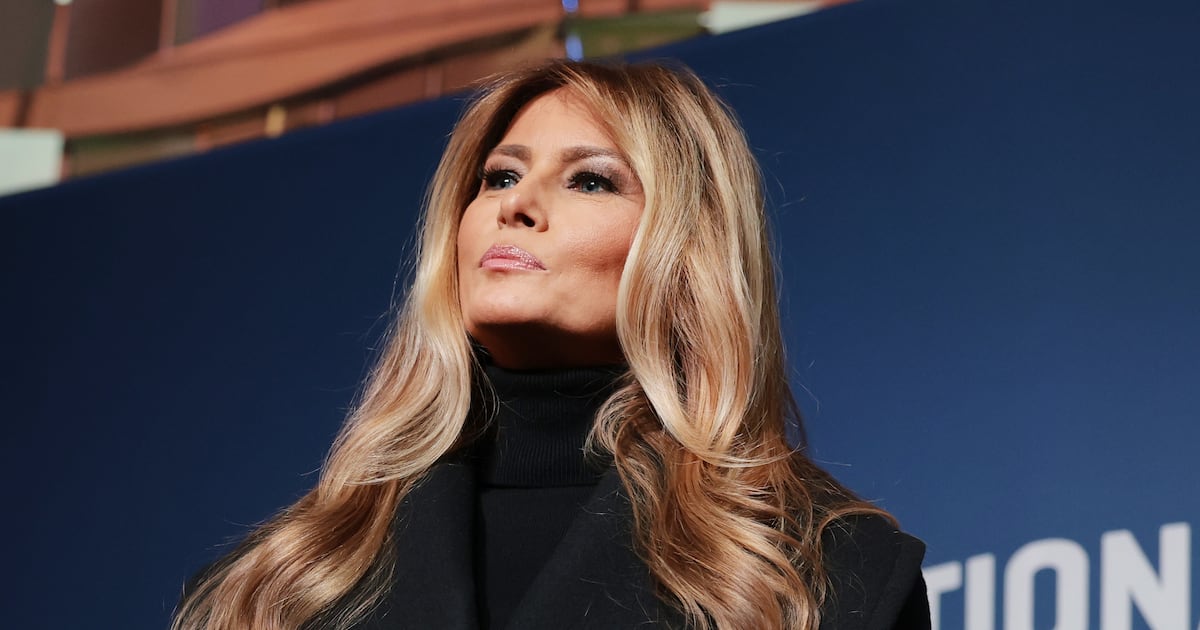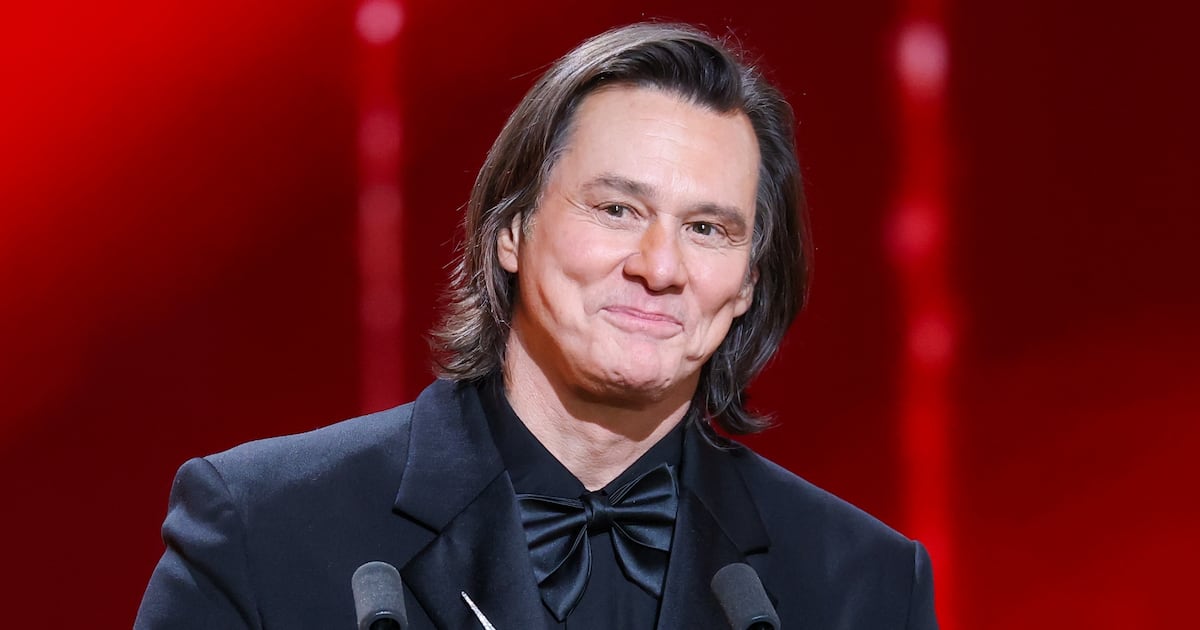In a recent interview during the fourth hour of Today, co-host Jenna Bush Hager suggested that Sydney Sweeney and Glen Powell—stars of the new rom-com Anyone but You (in theaters Dec. 22)—could be our next Meg Ryan and Tom Hanks. “We’ve talked about it,” Powell said in response to Hager’s pleas for a proper rom-com renaissance, harkening back to the magic of You’ve Got Mail and Sleepless in Seattle. “We’ll ‘Meg Ryan-and-Tom Hanks’ this thing.”
There’s just one problem: Ryan and Hanks didn’t just have firecracker chemistry together onscreen; they were also great performers in their own right, fun to watch even when they weren’t sharing a frame. Then, when both seasoned actors joined forces, they brought out the best of the material—often aided by a hilarious, considerate script penned by the genius Nora Ephron. Their spark burned so bright that they elevated rom-coms past the point of conventional genre fare. There’s a reason that Bush and millions of others revere those ’90s hits as classics: Both leads worked so damned hard to make them so.
While Anyone but You grazes the allure of Ryan and Hanks’ collaborations, the film lacks the proper push and pull between comedic beats and dramatic stakes that make those movies so watchable (and rewatchable). And even when it hits a pleasant middle ground to stride upon, Sweeney’s bizarre turn as a flighty law student in a romantic rut pulls the audience out of their momentary stupor. Though her performance is as discombobulated as her character seems to be, Sweeney’s distinct chemistry with Powell—along with Powell’s completely irresistible leading man charms—keep Anyone but You perfectly palatable, even if it won’t trigger a proper rom-com renaissance anytime soon.
One glaring reason why the movie can’t revive this stale genre is that it’s so proud of not being an original concept. The film is a modern adaptation of Shakespeare’s Much Ado About Nothing, joining the ranks of so many other contemporary spins on classic literature. Director Will Gluck scored big with 2010’s Easy A, his loose, chopped-and-screwed take on another high school reading list favorite, The Scarlet Letter. But lightning doesn’t always strike twice, especially when Gluck and co-writer Ilana Wolpert are so hellbent on reminding us of the movie’s source material. The film sprinkles quotes from Shakespeare’s play in little spots throughout the movie, never letting the viewer forget that it is an adaptation when we should be getting lost in the screenplay’s wit, updated for a new generation.
That said, Gluck and Wolpert got lucky when it came to honoring Shakespeare’s original character names of Beatrice and Benedick for the film. (Hamlet’s Horatio would be much more difficult to condense.) Sweeney stars as Bea, who is still plugging away in law school when she meets Powell’s Ben, a hedge fund bro with a heart of gold. The two share a clever meet cute at a coffee shop that highlights Sweeney’s knack for physical comedy, as Bea has to contort herself to dry the crotch of her pants using a hand dryer after a wayward burst of water. Both Powell and Sweeney are more than game for the film’s most demanding physical sequences, and it plays to their strengths with great success when they need to duck behind a hedge or play a wonky bit of grab-ass—you know, rom-com stuff.

Glen Powell and Sydney Sweeney.
Brook RushtonBut Anyone but You can’t hold itself up entirely on its actors’ best traits. After Bea and Ben’s magical first date turns sour due to an unexpected mix-up, the sweethearts find themselves at odds. This is only made worse when Bea finds out that her sister Halle (Hadley Robinson) is marrying Claudia (Alexandra Shipp), the sister of Ben’s best friend Pete (GaTa). With all of their natural pull, Sweeney and Powell have not yet mastered their antagonistic sides. The film’s script doesn’t do this artifice any favors when it has to pit the two against each other in the build-up to Halle and Claudia’s Australian destination wedding. I lost count of how many times the term “fuckboy” was thrown around, but given that the phrase was already outdated by 2021, even two is too many.
To avoid ruining their loved ones’ big day, Ben and Bea eventually decide to fake their own atonement, getting everyone off their backs by pretending to have buried the hatchet so far underground that they’ve reentered into a burgeoning relationship. This phony dynamic creates some amusing fodder between the couple, but nothing so laugh-out-loud hysterical that they can raise the material past ordinary. The best Anyone but You can muster is a smart joke about Ben playing Bop-It with Bea’s butt cheeks—say that five times fast—when they need to pretend to share a romantic moment.
Sweeney’s solid when it comes to these one-liners, but more careful comic timing doesn’t come so naturally. It’s almost as if you can see her mind working its way across a mental image of the script as she speaks. Sure, her dual lack of confidence and character make it all the more rousing when she nails a line out of nowhere. But those missing parts, the ones that are so necessary for a rom-com, only put a spotlight on her most leaden dialogue. The baffling lack of emotion in a line like, “It was the first time I felt fire, and I had to blow it out,” conjures a strange dissonance, the same one that has been noticeably present in the film’s marketing. Sweeney is a great dramatic actress, as she’s already proven in her troubled high schooler’s endlessly compelling arc in Euphoria and again last spring in the taut true story Reality. But comedy is its own science, one that she has yet to master.

Sydney Sweeney and Glen Powell.
Brook RushtonPowell is a dutiful scene partner, working his hardest to make up for his co-star and, in turn, dredging the best possible performance out of Sweeney. His Ben is a fount of charisma, so undeniably magnetic that Powell almost single-handedly keeps the film afloat. He’s a whip-smart actor, recalling not just the highs of Hanks but the suaveness of Cary Grant and the innate machismo of Marlon Brando. That may seem like high praise, but not when Powell is so adept at this kind of natural effortlessness. With her hand in his, Sweeney occasionally reaches effervescence. It’s a dynamic as bizarre to watch as it is strangely invigorating.
Although Powell is shirtless or naked for 80 percent of the film, that’s more of a tactic to fill seats than it is to fill time. Anyone but You gets a whole lot of mileage out of its two stars’ beauty, but it finds enough silly ways to make their gorgeousness the punchline that it doesn’t feel like objectification. The nudity gags become repetitive by the film’s end, however—along with a Natasha Bedingfield needle drop that’s brilliant the first time it receives a callback, yet quickly becomes grating.
But that’s ultimately alright. Anyone but You is merely a 103-minute-long chemistry read, and its stars pass the test with a grade strong enough to ignore some of the film’s lower marks. It’s a satisfying return to the genre from Gluck, a promising feature-length script debut from Wolpert, and an intriguing first outing from Sweeney and Powell. The two stars have the stuff; it just needs some more refining before round two (and perhaps a movie that takes more than 10 months from principle production to its theatrical debut). They may not be the next Meg Ryan and Tom Hanks (yet), but this pair—and their big Australian tourism ad—will do just fine for a night out.







